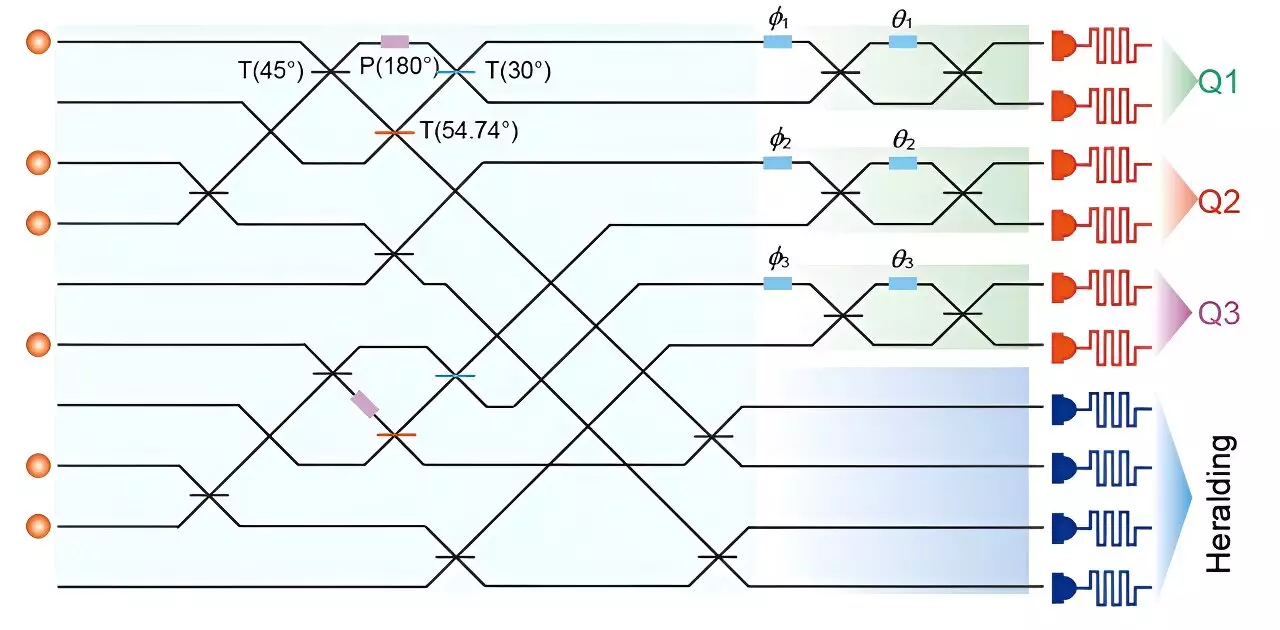Quantum computing has the potential to revolutionize the way we process information, offering faster and more efficient solutions to complex problems. Photonic quantum computers, in particular, have garnered attention for their ability to leverage quantum physics and utilize particles of light as units of information processing. Despite their promise, researchers have faced challenges in realizing the full potential of these computational tools.
The Challenge of Weak Interactions
One of the primary obstacles hindering the advancement of photonic quantum computers is the weak interactions between individual photons. These weak interactions have made it difficult to achieve deterministic two-qubit gates essential for scalability. However, researchers at the University of Science and Technology of China have made significant strides in overcoming this challenge.
Cluster State Demonstration
In a recent study published in Physical Review Letters, researchers demonstrated a large cluster state that could facilitate quantum computation in a photonic system. This cluster state, known as three-photon entanglement, is a key advancement in the field of photonic quantum computing. By fusing small resource states into large-scale cluster states, researchers are paving the way for measurement-based quantum computing.
Previous studies have highlighted the potential of fusion and percolation as scalable approaches to realizing quantum computation in photonic systems. These approaches eliminate the need for deterministic entangling gates, offering a more efficient and practical solution for building quantum computers. Wang and his colleagues have successfully employed these strategies in their research, bringing us closer to the realization of fault-tolerant photonic quantum computing.
Through the near-deterministic generation of entangled clusters in a heralded fashion, researchers have achieved significant milestones in the development of photonic quantum computers. By generating a 3-GHZ state from a single-photon source in a photonic chip, the researchers have demonstrated the feasibility of building large-scale optical quantum computers. This breakthrough could accelerate the development of fault-tolerant quantum computing systems.
Future Outlook
The recent advances in photonic quantum computing suggest that we are on the cusp of achieving fault-tolerant quantum computers utilizing photonic chips. With the continued progress in the field, researchers are optimistic about achieving even greater milestones in the near future. By amalgamating multiple 3-GHZ resource states, researchers believe they can build more extensive entangled states, paving the way for a new era of quantum computing.
The future of photonic quantum computing looks promising, with researchers making significant strides towards building fault-tolerant quantum computers. By leveraging the power of quantum physics and utilizing particles of light, researchers are pushing the boundaries of what is possible in the world of computing. With continued advancements and breakthroughs, we are on the brink of a quantum revolution that could transform the way we process information.


Leave a Reply